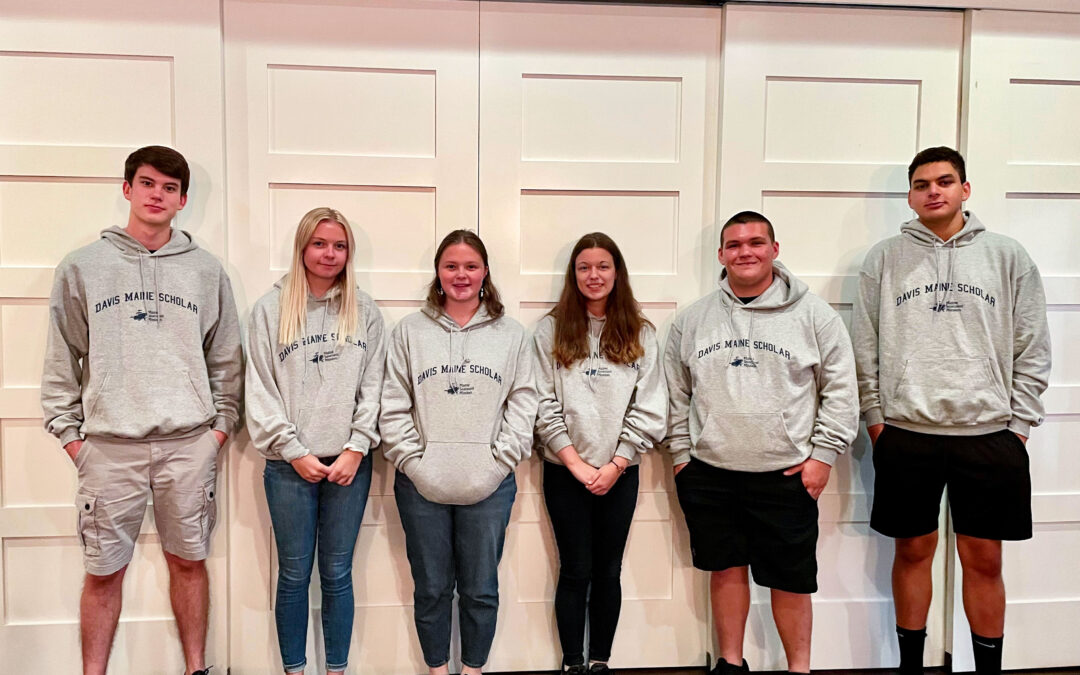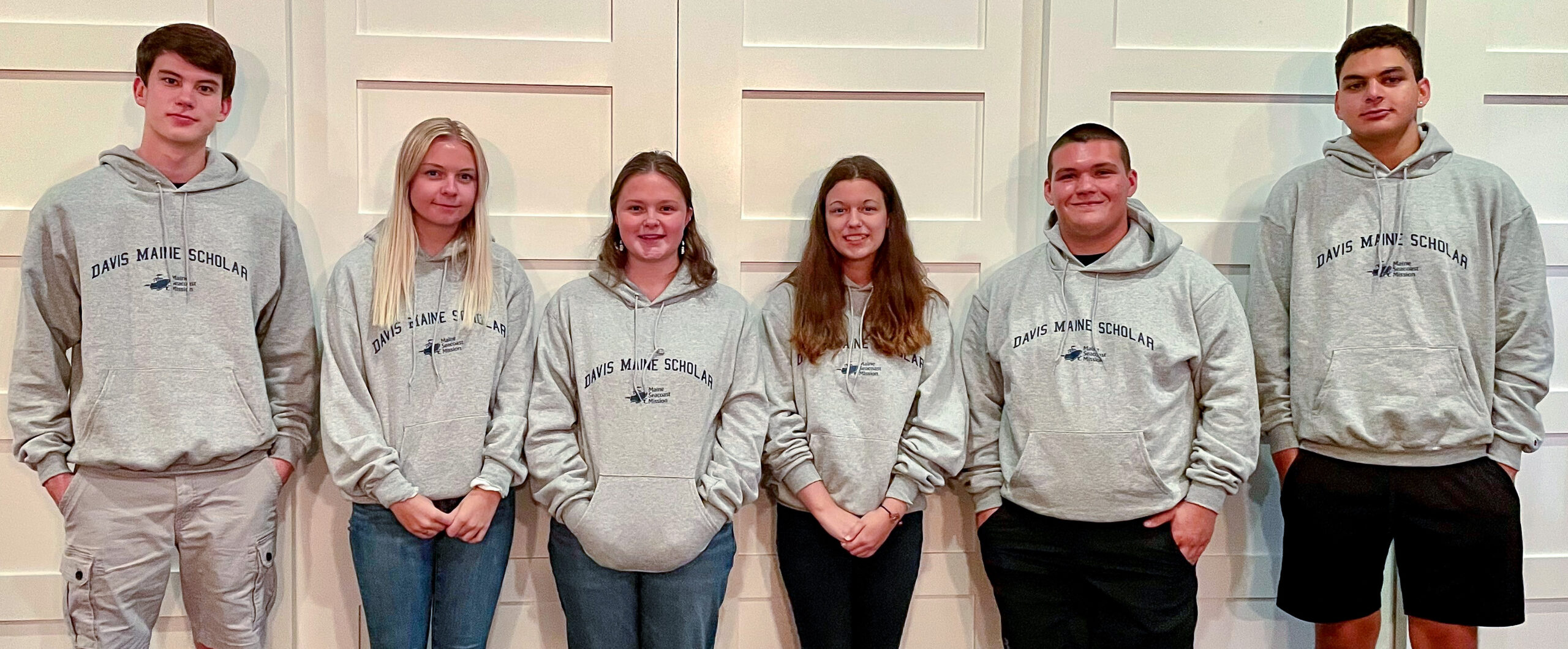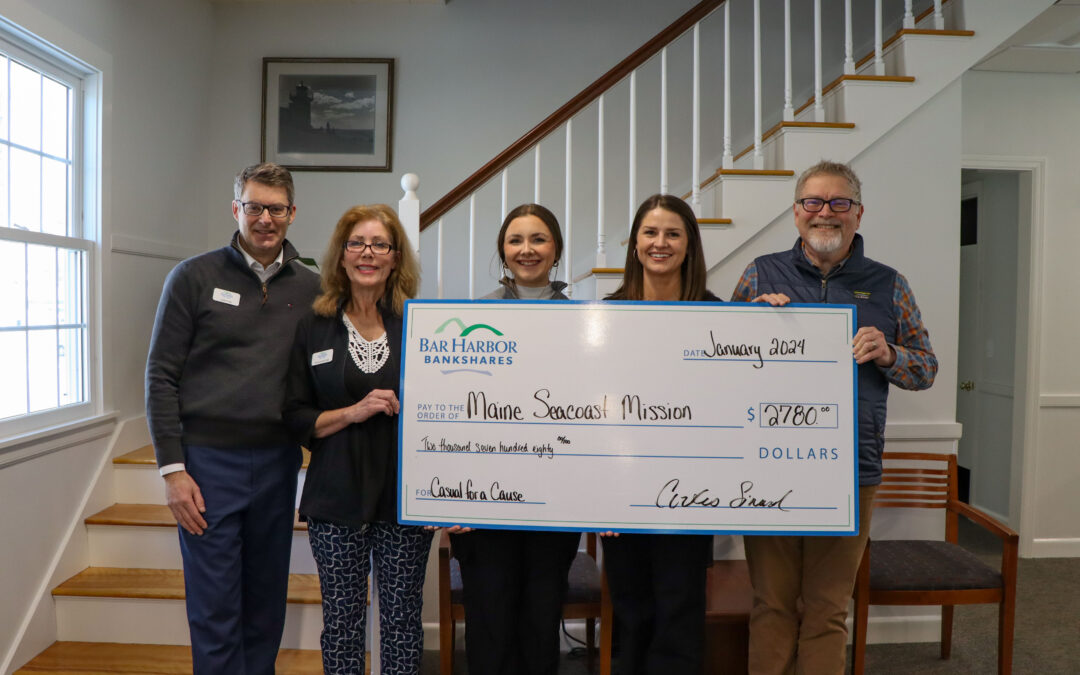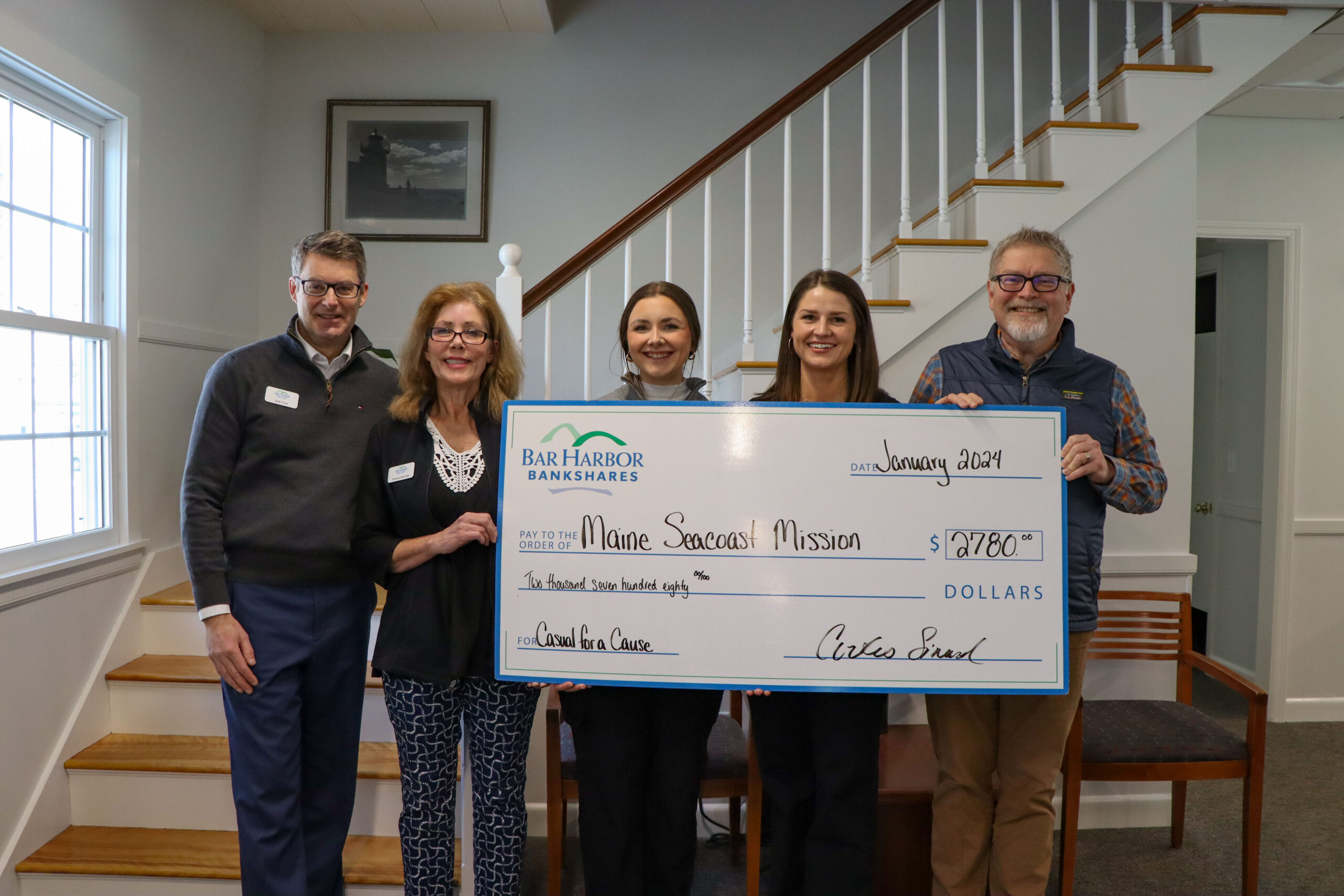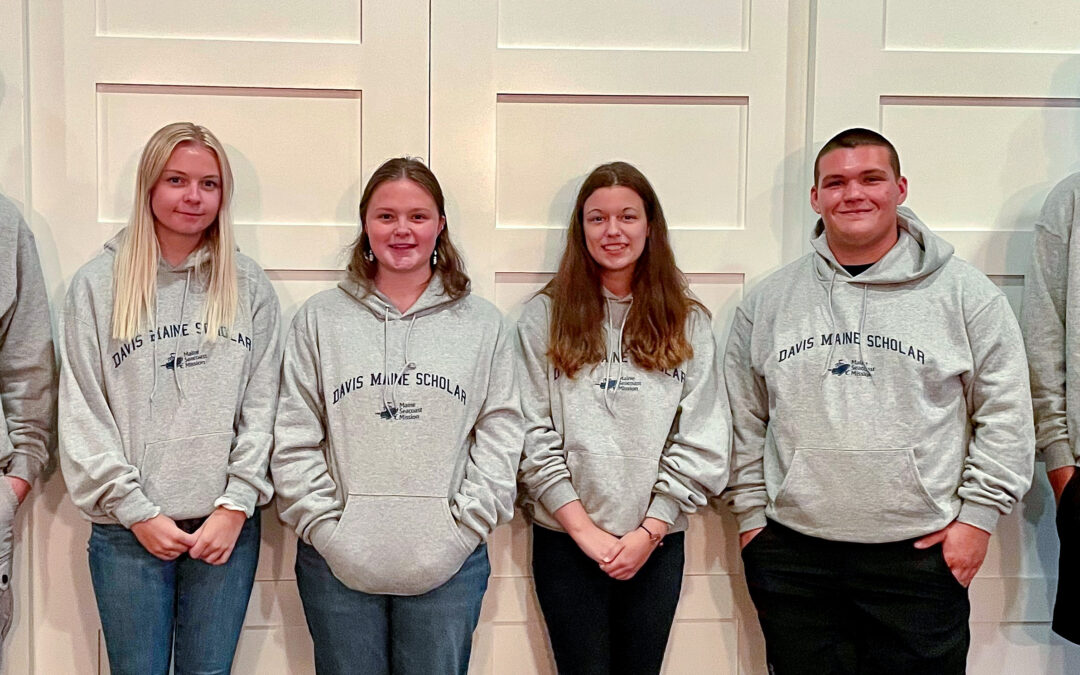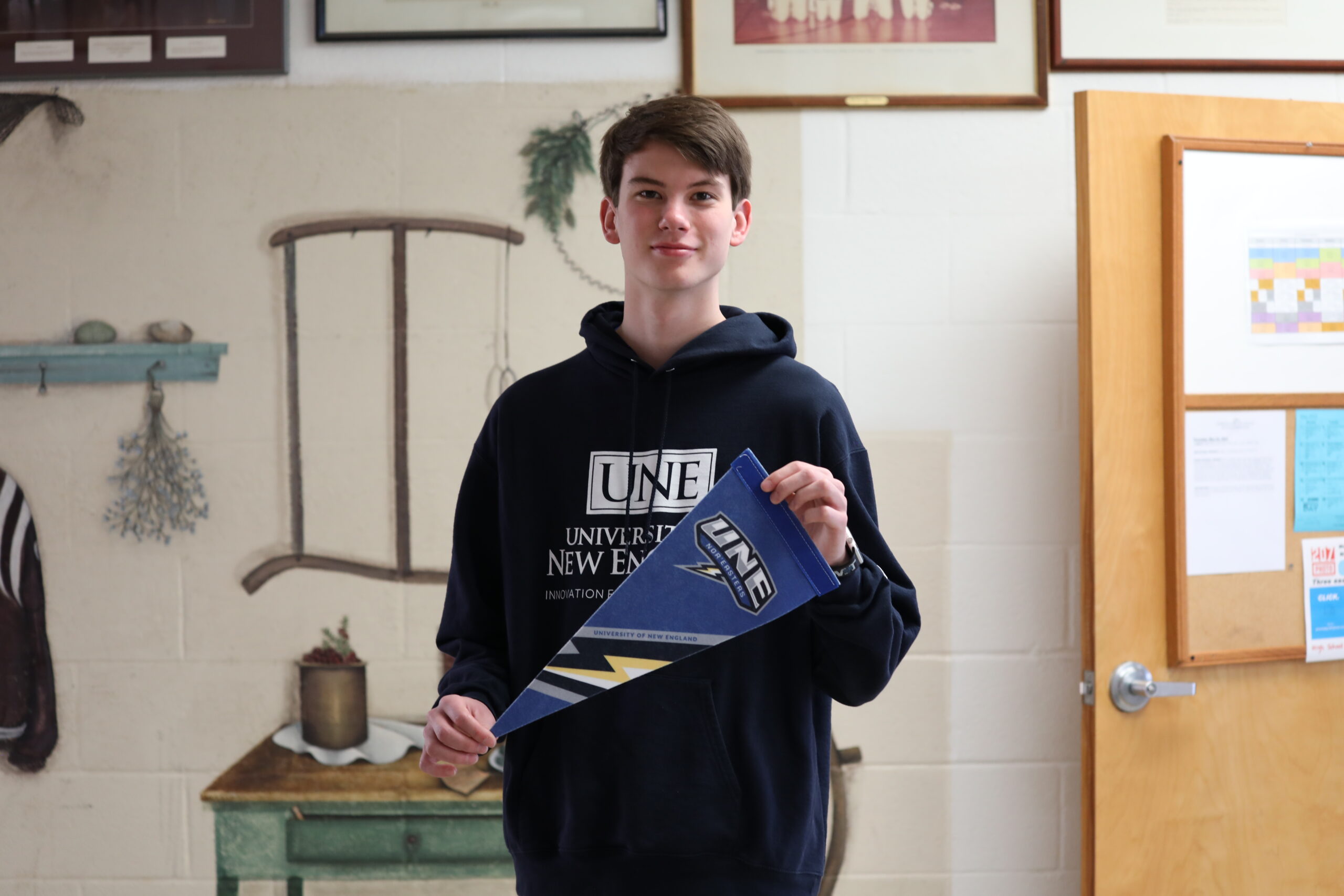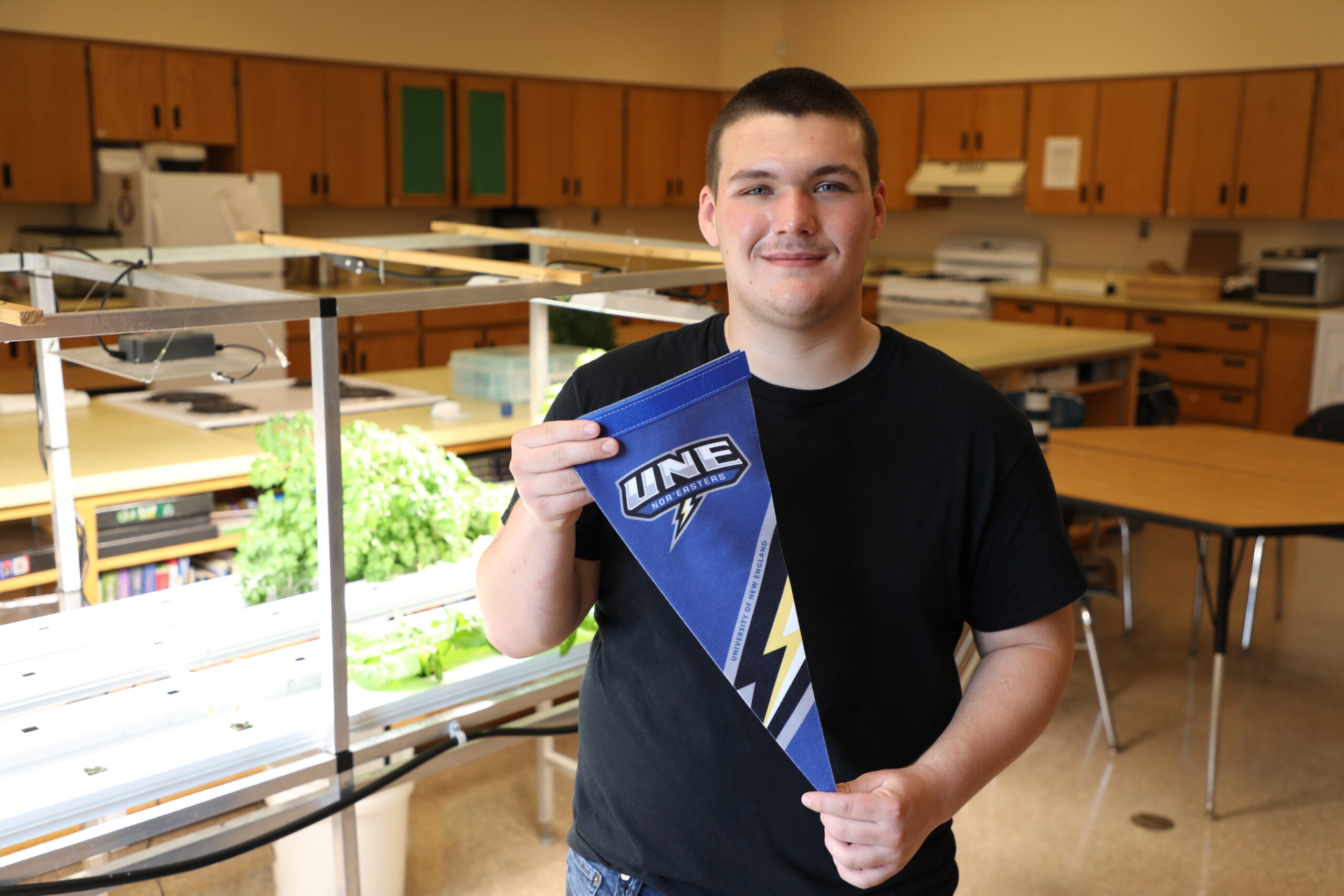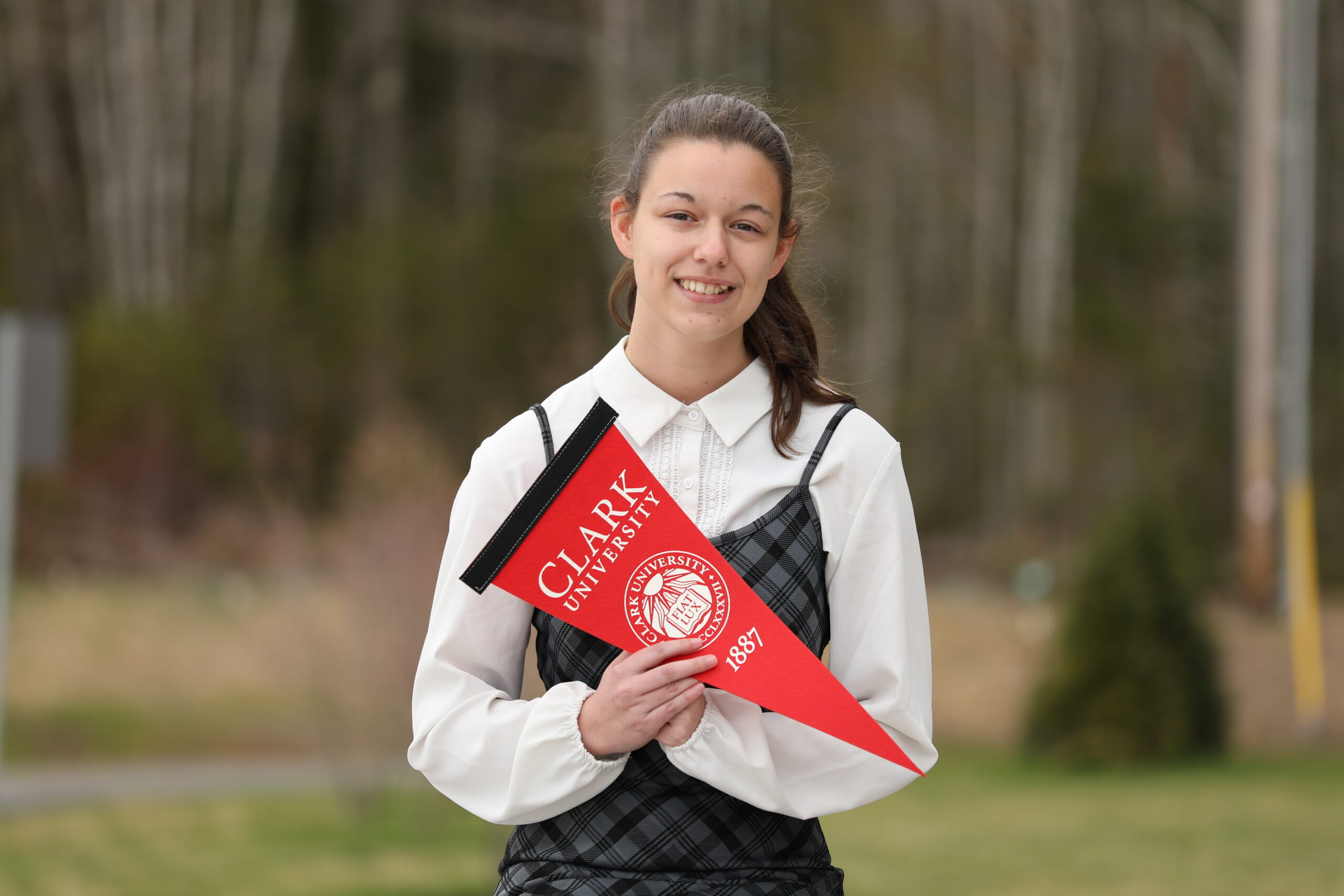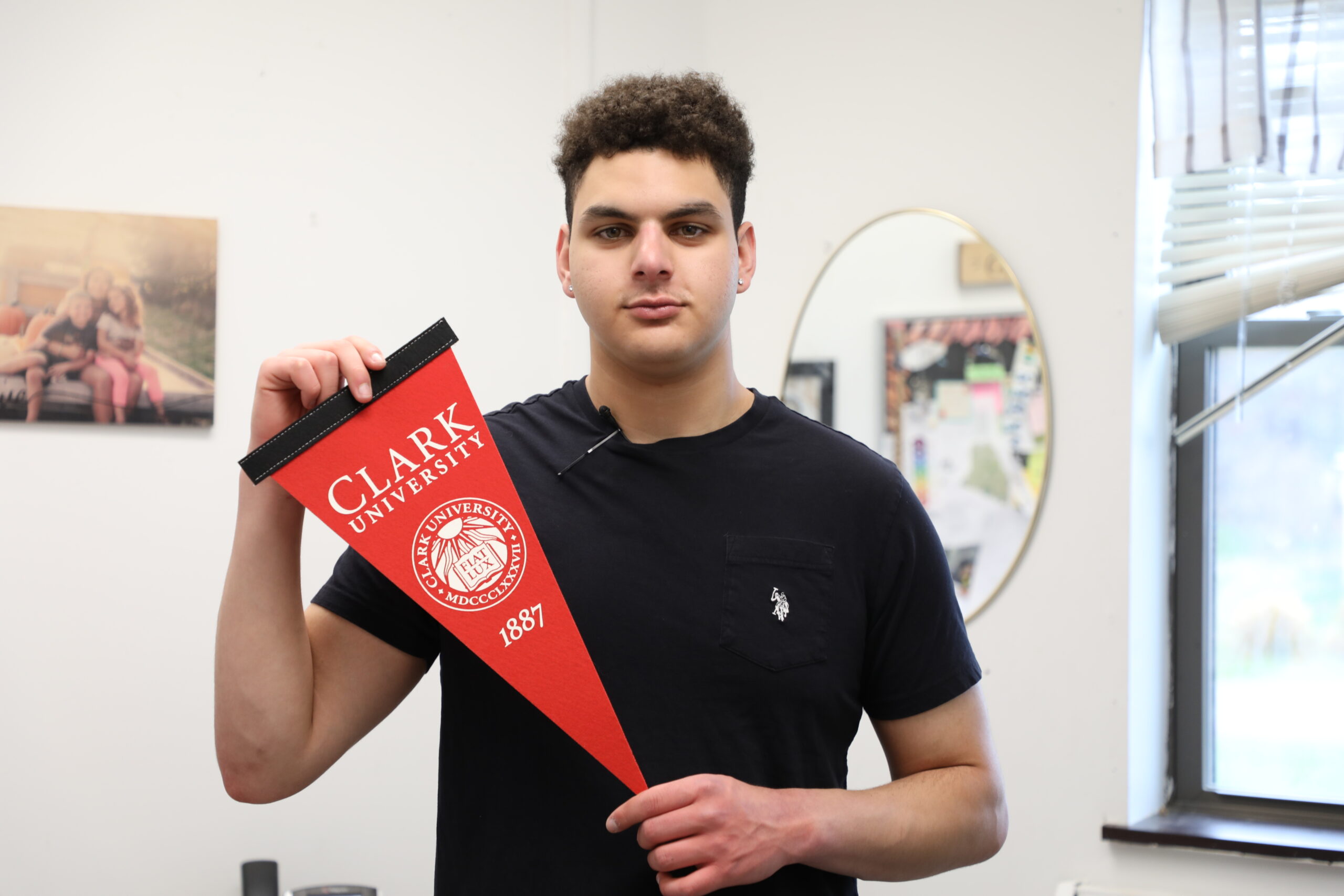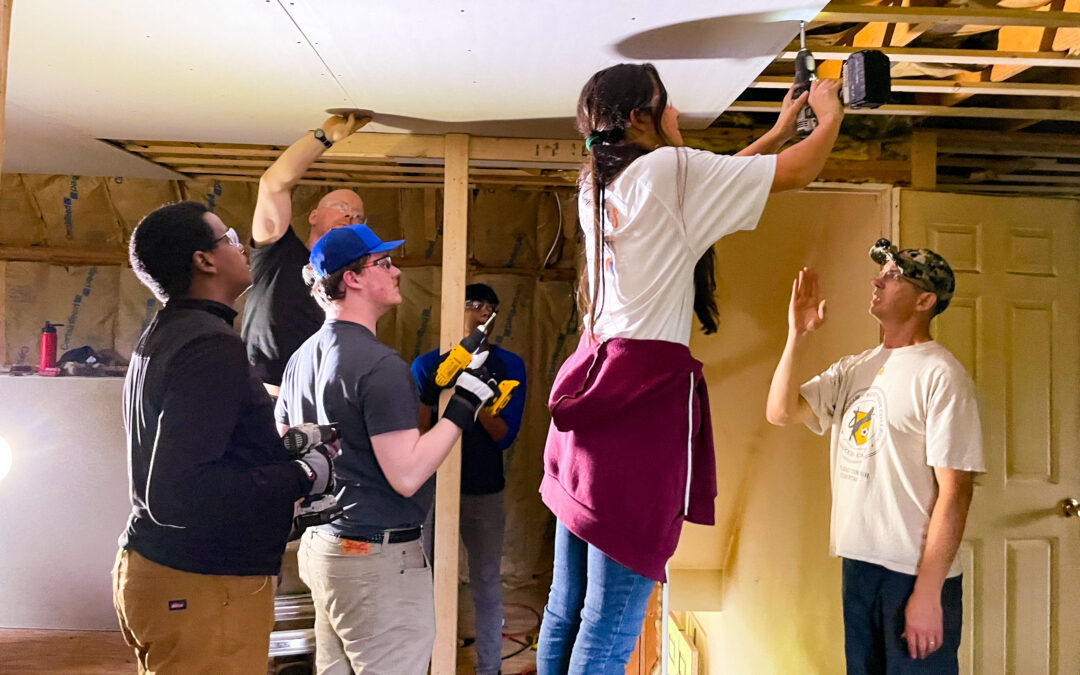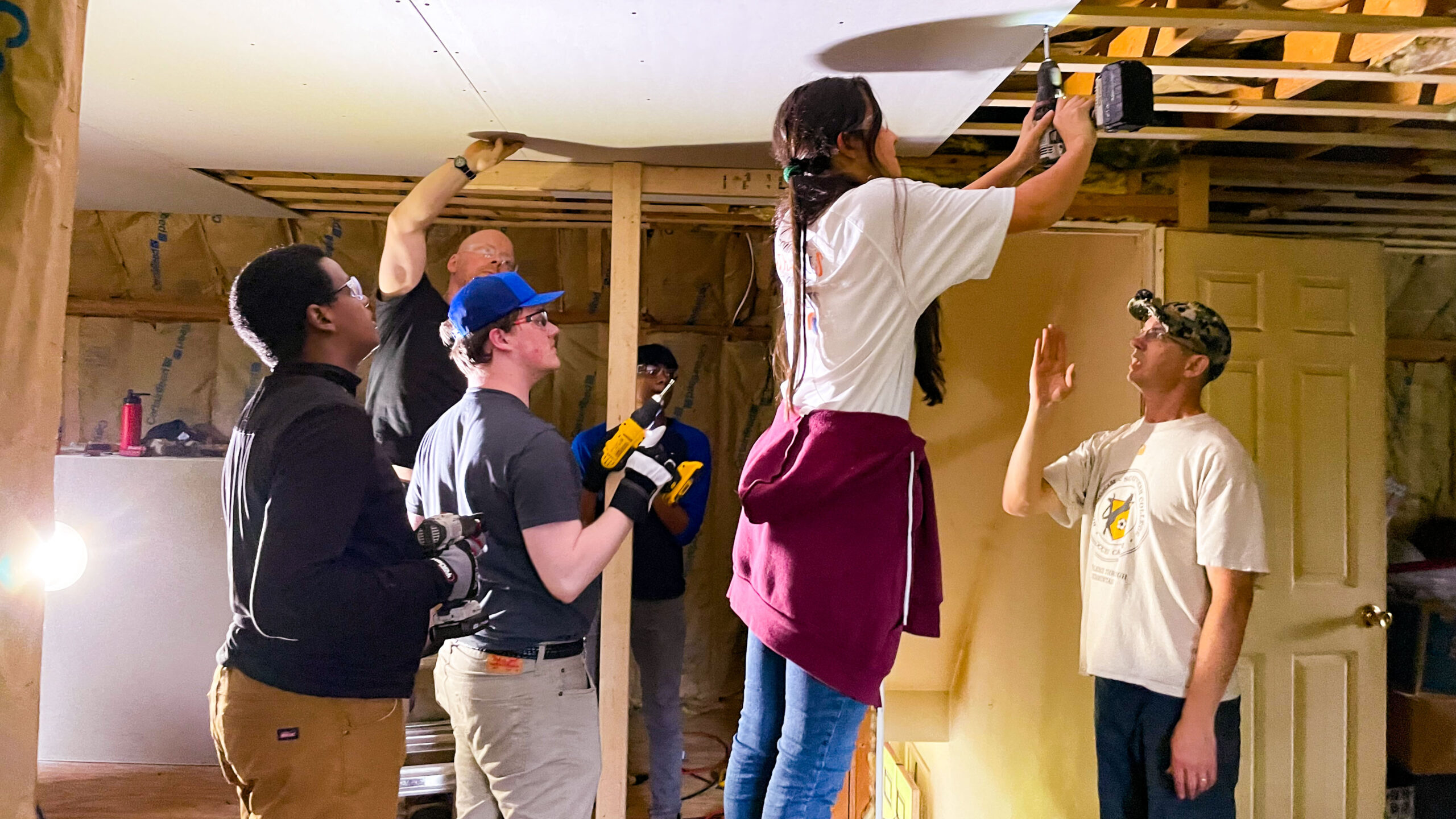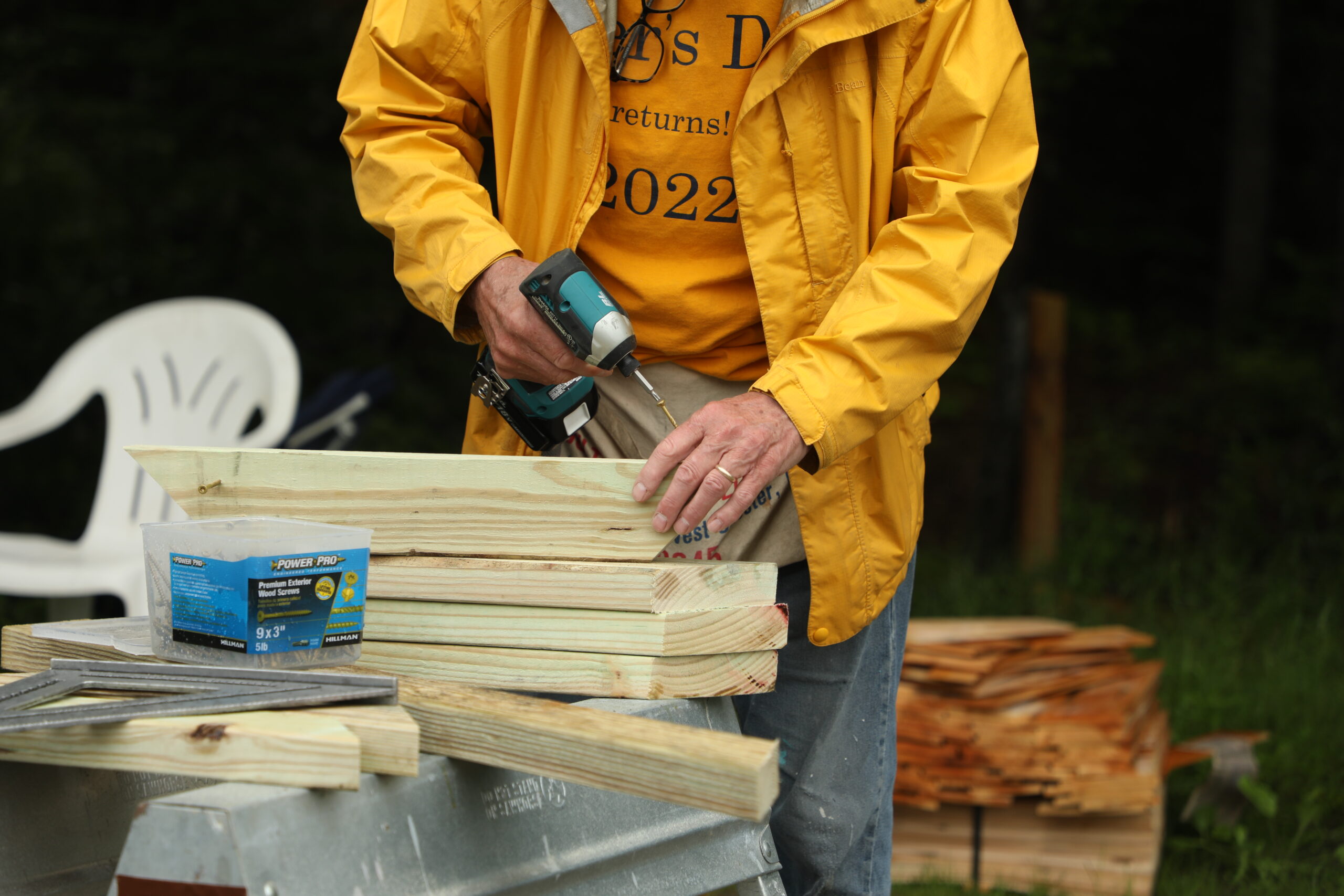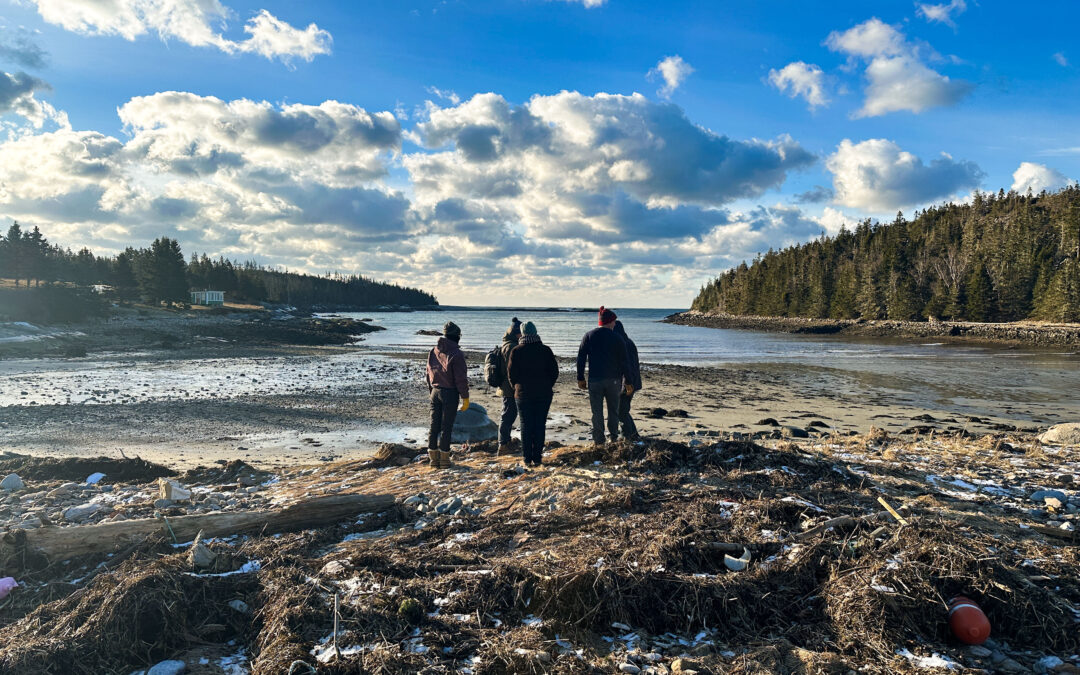
Mission Launches Disaster Recovery Initiative to Maine Islands
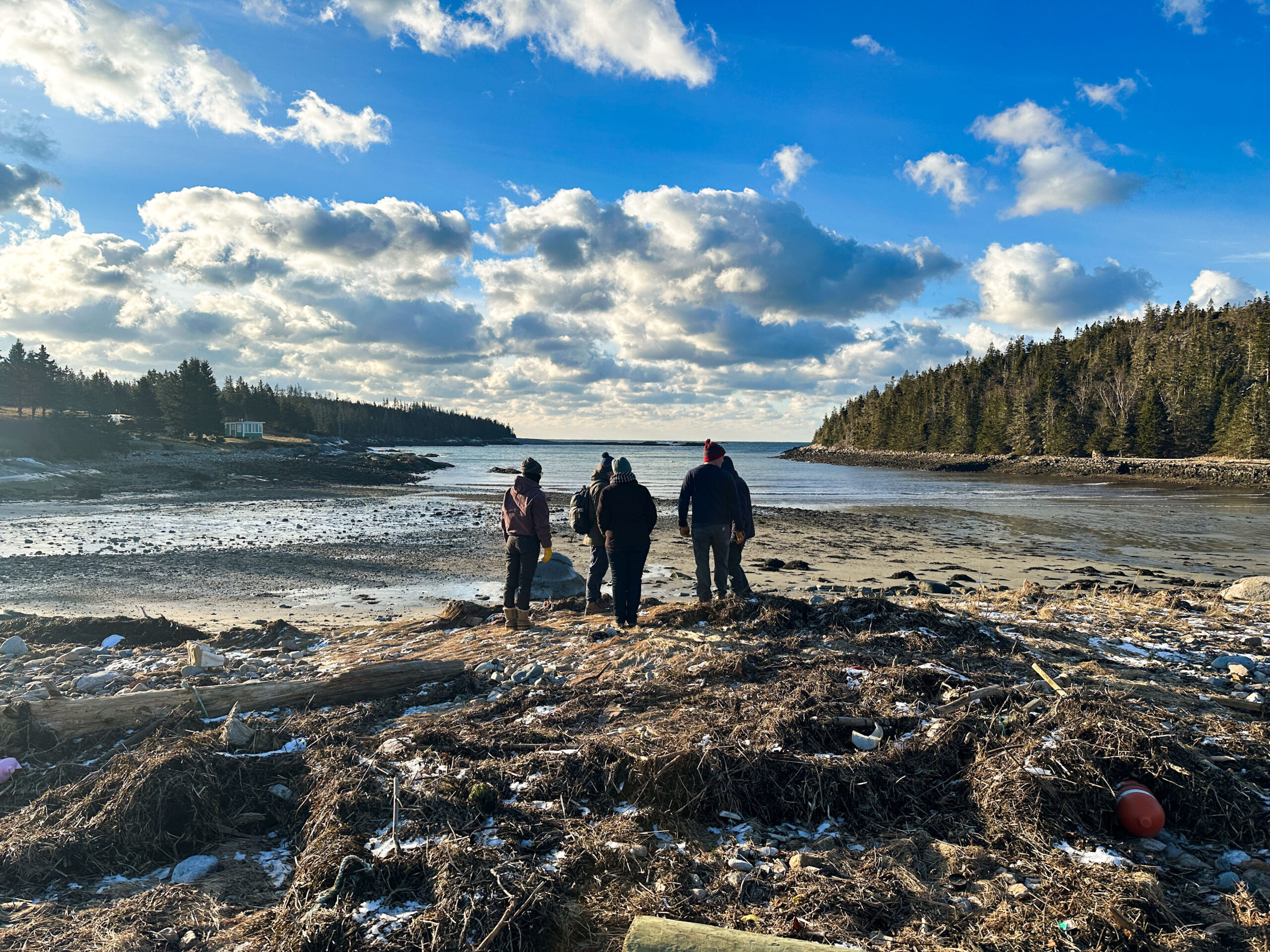
Your gift to the Maine Seacoast Mission makes you part of all we do.
Immediately following the January 10th and 13th storms, which caused widespread damage and flooding for Maine’s coastal communities, the Mission traveled to select islands aboard Sunbeam to assess how these communities were faring. During the three-day venture, Mission staff and a guest from nonprofit partner Island Institute collected 20 contractor bags of debris in addition to having multiple conversations with residents and business owners.
Some of the damage experienced—which islanders are still contending with—includes loss and/or damage to personal property, damage to community and business infrastructure, soil and coastline erosion, and ocean debris washed ashore.
“The Mission has worked with Maine islands for going on 120 years. Following the storms, we wanted to show our continued support and do whatever we could to help, like the Mission has always done.” shares Mission President John Zavodny, “These trips also provide an opportunity for volunteers to do something to help their island neighbors and learn more about these amazing communities.”
To continue to assist in disaster recovery following the January storms, the Mission will hold two, multiple-day volunteer service trips to unbridged, outer islands in March and April. These visits will be to the islands of Frenchboro, Great Cranberry, Little Cranberry (Islesford), and Matinicus. Volunteers will assist islands in the clean-up and work will include clearing debris, moving items, and removing trash from shorelines, public ways, and publicly used buildings such as the Ashley Bryan School and Neighborhood House. The current plans include visiting work sites on each island for between two and three hours in the morning and in the afternoon.
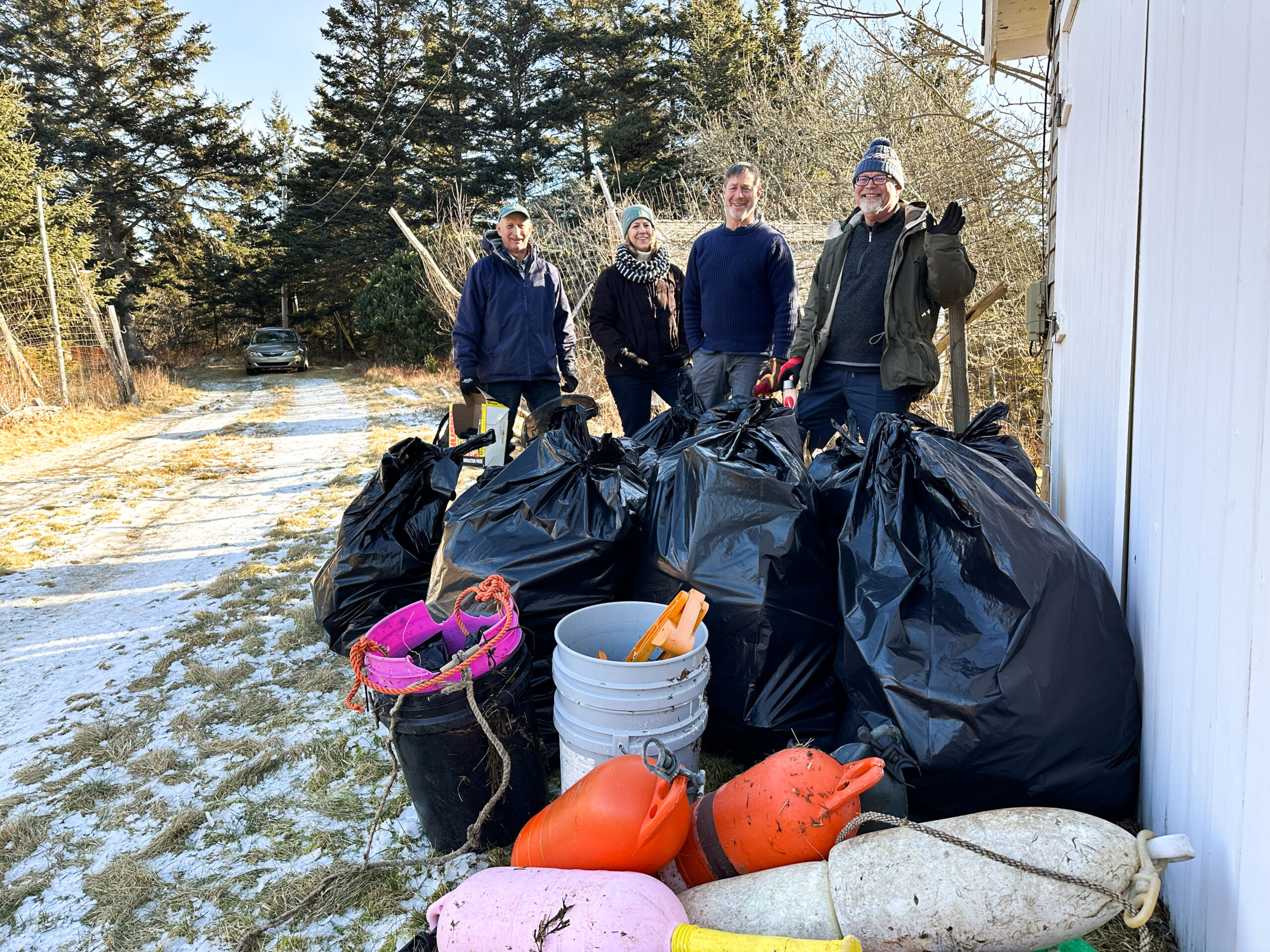
From March 19 to 21, 10 volunteers will travel to Frenchboro, Great Cranberry, Little Cranberry. From April 12 to 14, volunteers of Sigma Kappa Sorority’s Northeastern University chapter will travel to Matinicus. Following the spring trips, the Mission will consider whether the initiative should expand to additional locations in our service area.



